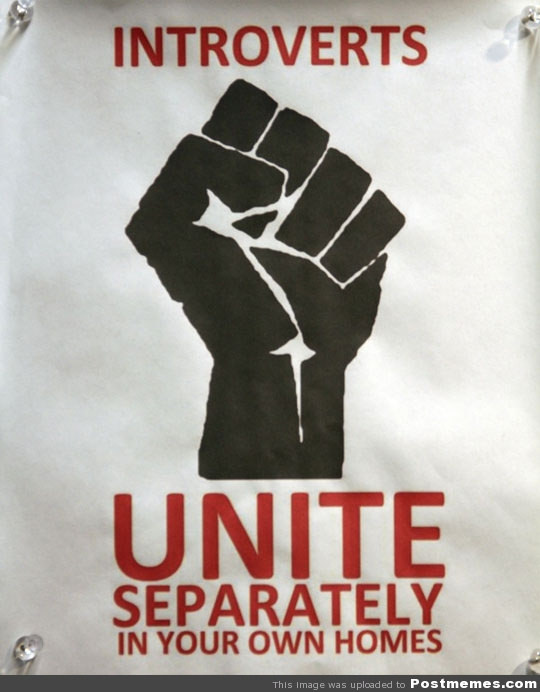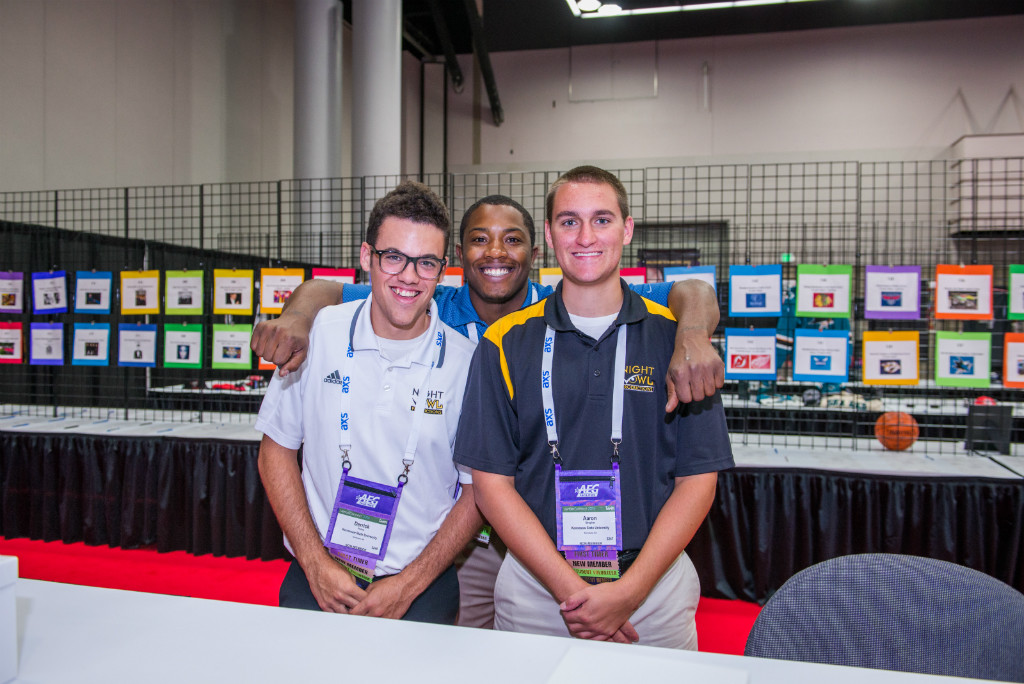The World’s First Color Changing Electronic Ink for Walls
The 2015 Consumer Electronics Show (CES) is under way in Las Vegas at the moment. It’s always an exciting time, when companies pitch their latest wares in technology. If you’re sick of hearing about wearables, for instance, you might want to turn off the news this week.
Still, there’s more at the show than smart watches, smart homes, and smart TVs. There are now smart walls.
E Ink, a company involved in electronic ink technology, announced its E Ink Prism product at CES. E Ink Prism is a programmable film, similar to paint, that can change color and morph into patterns or shapes with the touch of button.
“Commercial lobbies, airport terminals, and public auditoriums can now automatically change color and enhance the human sensory experience,” the company said in a press release. “Customer reception areas will be more interesting and visually exciting, retailers can build dynamic staging elements for their marketing campaigns, and exhibitors can maximize presentations to boost visitor engagement.”
Here’s a short video of the product in action:
(Image: E Ink)
Introverts Could Control Your Workplace Success
 Sure, they may not be the first to raise their hands, they may sit in the back row, and they may be the quietest in the office, but introverts are the power brokers of careers.
Sure, they may not be the first to raise their hands, they may sit in the back row, and they may be the quietest in the office, but introverts are the power brokers of careers.
According to researchers at Oregon State University (OSU), the University of Florida, and the University of Notre Dame, introverts are more likely to give extroverts low evaluations for job performances.
“The magnitude with which introverts underrated performance of extroverts was surprising,” said Keith Leavitt, an assistant professor in OSU’s College of Business and a co-author of the studies. “The results were very consistent across both studies.”
The studies provide an understanding on the role of personality in the workplace, where co-workers often have influence on one another’s careers.
“That gives employees a tremendous amount of power to influence their peers’ career opportunities,” Leavitt said. “It’s something individuals and employers should be aware of.”
In one study, the researchers had 178 MBA students assigned to four- or five-person project teams for a semester. Halfway through the term, the participants filled out questionnaires about team members, processes, and their own personalities.
The researchers found that introverts rated the performance of other introverts higher than extroverts. However, extroverts were not swayed by the personalities of team members in their performance reviews.
A second study showed similar results.
“We found that introverted employees are especially sensitive to their co-workers’ interpersonal traits, in particular extraversion and disagreeableness,” Leavitt said. “They make judgments and evaluate performance of others with those traits in mind.”
Leavitt suggests that extroverts tone it down when interacting with introverts, and managers should consider that personality traits can greatly affect performance evaluations. Also, supervisors should think twice about forcing interaction among extroverts and introverts in the workplace.
(photo credit: Postmemes.com via photopin cc)
Student Success Stories: Where Are They Now?
Since 2007, nearly 150 students have interned with the IAVM Foundation at VenueConnect, IAVM’s Annual Conference & Trade Show. Here is where some of them are today.
2007
Ricky Nichols, assistant director, Don Haskins Center – University of Texas at El Paso
Sara Schenck, sales services specialist – Ticketmaster
Joseph Rekowski, concessions manager – Levy Restaurants at Sprint Center
Lauren Simpson, events manager – Grand Ole Opry House
Matthew Collin, event director – Argust Event Staffing
2008
Matt Parker, director, event marketing and sales – FELD Entertainment
Jon Cowen, event manager – STAPLES Center
Mike Simonson, guest services manager – South Carolina Aquarium
Evan Holmes, director of business operations – Mercedes Benz SuperDome
2009
Whitney Goulish, director of ticket sales – Collegiate Consulting at University of Missouri Kansas City
Nate Hayden, director of business operations – Fiesta Bowl
Ashley York, event manager – Greater Fort Lauderdale Broward County Convention Center
Philip Costa, senior event coordinator – Stephen C. O’Connell Center
Kevin Burgess, assistant director of production – Stephen C. O’Connell Center
Philip Carpenter, operations manager – Liacouras Center
Steven Rodriguez, account executive, ticket sales – Collegiate Consulting at Rice University
Kathryn Carlson, guest services & security manager – American Airlines Center
Alaina Meissbach-Patton, event support specialist – Ticketmaster
2010
Jaclyn Sadler, director of corporate events & sales – International Bowling Campus
David Bennett, associate director of facilities and operations – Clemson University
Amber Stolley, event coordinator/house manager – Eureka Lodge
Caitlin Volpe, event coordinator – AT&T Performing Arts Center
Ryan Cross, box office manager – TicketsWest
“I wouldn’t have gotten as far as I have without the help of the Foundation.”—Ryan Cross, TicketsWest
“If it wasn’t for interning with IAVM, I would not have been able to network and connect with so many professionals and have the opportunities that I have had.”—Caitlin Volpe, AT&T Performing Arts Center
2011
Kenneth Gaudinez, assistant director, event operations – Wake Forest University
Bob Hotaling, event manager – The Ford Center
Aaron Batson, event manager – Orange County Convention Center
“I am a HUGE believer in this program and believe that it has helped me greatly get where I am today!”—Aaron Batson, Orange County Convention Center
2012
Justin Aquino, event coordinator – Orange County Fair and Event Center
Danny Sujanani, event prep supervisor – Greensboro Coliseum Complex
Ginny Van Doren, marketing coordinator – Cedar Park Center
Andrea Wherry, meeting planner – University of Florida
Melanie Hellmann, assistant suites manager – Delaware North
“The opportunities through the Foundation will help any aspiring venue manager fulfill their goals.”—Justin Aquino, OC Fair and Event Center
2013
Courtney Dotts, event services coordinator – Philadelphia Eagles
Jason LoRusso, development associate – IAVM Foundation
Clara Sackey, senior product consultant – CrowdTorch by Cvent
Tyler Smith, Adidas field agent – Axis of Awesome
2014
McKell Bennett, assistant marketing director – University of Montana Athletics
Laura Sherman, assistant food and beverage manager – U.S. Cellular Center
Meryl Hershfield, event services coordinator – Florida Panthers
“Attending IAVM’s VenueConnect has been one of the best decisions I have made to date. The opportunity was unforgettable, and the friends I met are some of the best people I know.”—McKell Bennett, University of Montana Athletics
The IAVM Foundation offers several scholarships and internships for our many programs. Visit our website to learn more and to apply.
(Image: Orange Photography)
1 Thing You Need to Start Doing (If You’re Not Already)
The best gift you can give your customers consists of two words: Thank you.
According to a new study from Michigan State University (MSU), satisfied customers who were acknowledged by a company president for filling out a satisfaction survey increased their patronage to the business by more than 50 percent.
“Sweetening the pot with rewards really didn’t matter,” said Clay Voorhees, MSU associate professor of marketing and lead author of the study. “These findings suggest that simple, sincere gestures are enough to drive feelings of gratitude among consumers.”
Voorhees and his colleagues focused their study on restaurant customers, tracking their visits for 12 months after a thank-you email was sent from the company president upon completion of a satisfaction survey. They found that repeat visits increased 50 percent for men and 57 percent for women.
“In the restaurant industry, where 5 percent is a big deal, 50 percent blew our minds,” Voorhees said.
Also, the size of a customer’s party increased, with an increase of 79 percent for women and 42 percent for men.
“So it wasn’t just that they came back,” he said. “They came back and brought more people with them.”
The key is not to send an immediate automated response.
“Delaying the acknowledgement is critical to ensure it comes across as being more personal and sincere,” Voorhees said.
(photo credit: MjZ Photography via photopin cc)
3 Ways to Be a Better Employee
Our drive to improve ourselves moves into high gear as we look toward a new year. And one of our first places of improvement starts at work, where we should always seek to better ourselves.
According to Kitty Boitnott, PhD, NBCT, a certified life strategies and stress management coach, there are immediate ways we can be better employees. She lists them in “5 Bad Work Habits to Break in 2015” on the website Careerealism.com. Here are three of her suggestions.
1. Be on Time
“It is much better to be known as the guy (or gal) who is always 10 minutes early for everything as opposed to being known for always being 10 minutes late for everything,” Boitnott wrote. “Being late is disrespectful of the people who are waiting for you.”
2. Avoid Office Gossip
“People may enjoy your stories for a while, but eventually they will start to wonder what you are telling other people about them given your penchant for not being able to keep a secret or hold a confidence.”
3. Stop Saying “It’s Not My Job”
“While it may be true that a particular job that you are asked to perform is outside the actual letter of your contract, by doing it anyway you demonstrate that you are a team player.”
Check out the article for the other two suggestions, and please let us know how you plan to improve your career next year in the comments section.
(photo credit: Whiskeygonebad via photopin cc)
Do you want to receive a Front Row News weekly digest?
Categories
- Allied (861)
- Architecture (147)
- Arenas (747)
- Career (897)
- Convention Centers (895)
- Education (623)
- Events (1,544)
- Food & Beverage (193)
- Foundation (113)
- Guest Experience (1,496)
- Industry News (2,270)
- Leadership (1,888)
- Marketing (150)
- Membership (2,000)
- Music (213)
- Performing Arts Centers (454)
- Professional Development (409)
- Research (127)
- Safety & Security (442)
- Sports (763)
- Stadiums (608)
- Student (159)
- Technology (516)
- Ticketing (92)
- Touring (82)
- Trends (364)
- Uncategorized (742)
- Universities (218)
- Video (25)
- Young Professional (198)
Twitter Feed
- Twitter feed loading
Recent Posts
- Seattle Convention Center Announces Strategic Leadership Appointment and Growth Initiatives for 2026
- Peggy Daidakis Humbly Made Convention Center History
- Welcome to Our Newest Members
- New Member Benefit! IAVM Partners with Advantage Training to Elevate Staff Readiness and Guest Experience
- Charlotte Convention Center Welcomes Two New Leaders to its Management Team
Categories
- Allied
- Architecture
- Arenas
- Career
- Convention Centers
- Education
- Events
- Food & Beverage
- Foundation
- Guest Experience
- Industry News
- Leadership
- Marketing
- Membership
- Music
- Performing Arts Centers
- Professional Development
- Research
- Safety & Security
- Sports
- Stadiums
- Student
- Technology
- Ticketing
- Touring
- Trends
- Uncategorized
- Universities
- Video
- Young Professional
Archives
- December 2025
- November 2025
- October 2025
- September 2025
- August 2025
- July 2025
- June 2025
- May 2025
- April 2025
- March 2025
- February 2025
- January 2025
- December 2024
- November 2024
- October 2024
- September 2024
- August 2024
- July 2024
- June 2024
- May 2024
- April 2024
- March 2024
- February 2024
- January 2024
- December 2023
- November 2023
- October 2023
- September 2023
- August 2023
- July 2023
- June 2023
- May 2023
- April 2023
- March 2023
- February 2023
- January 2023
- December 2022
- November 2022
- October 2022
- September 2022
- August 2022
- July 2022
- June 2022
- May 2022
- April 2022
- March 2022
- February 2022
- January 2022
- December 2021
- November 2021
- October 2021
- September 2021
- August 2021
- July 2021
- June 2021
- May 2021
- April 2021
- March 2021
- February 2021
- January 2021
- December 2020
- November 2020
- October 2020
- September 2020
- August 2020
- July 2020
- June 2020
- May 2020
- April 2020
- March 2020
- February 2020
- January 2020
- December 2019
- November 2019
- October 2019
- September 2019
- August 2019
- July 2019
- June 2019
- May 2019
- April 2019
- March 2019
- February 2019
- January 2019
- December 2018
- November 2018
- October 2018
- September 2018
- August 2018
- July 2018
- June 2018
- May 2018
- April 2018
- March 2018
- February 2018
- January 2018
- December 2017
- November 2017
- October 2017
- September 2017
- August 2017
- July 2017
- June 2017
- May 2017
- April 2017
- March 2017
- February 2017
- January 2017
- December 2016
- November 2016
- October 2016
- September 2016
- August 2016
- July 2016
- June 2016
- May 2016
- April 2016
- March 2016
- February 2016
- January 2016
- December 2015
- November 2015
- October 2015
- September 2015
- August 2015
- July 2015
- June 2015
- May 2015
- April 2015
- March 2015
- February 2015
- January 2015
- December 2014
- November 2014
- October 2014
- September 2014
- August 2014
- July 2014
- June 2014
- May 2014
- April 2014
- March 2014
- February 2014
- January 2014
- December 2013
- November 2013
- October 2013
- September 2013
- August 2013
- July 2013
- June 2013
- May 2013
- April 2013
- March 2013
- February 2013
- January 2013
- May 2012
- March 2012
- December 2011
- November 2011
- October 2011
Recent Comments
- Frank Bradshaw, Ph.D., CVE on John Meyer, CVE, a Tireless Advocate of Certification for Venue Professionals, Has Died
- Neil Sulkes on Hilary Hartung, Friend to Many in Venue Marketing, Has Left Us
- Jason Parker, CVE on The Devastation of Hurricane Helene and How We Can Support One Another
- Larry Perkins on Touhey Testifies Against Speculative Ticketing Before Congressional Subcommittee
- Peter Secord on Major Players for Planned Elkhart Amphitheater Were in the Mix at VenueConnect




